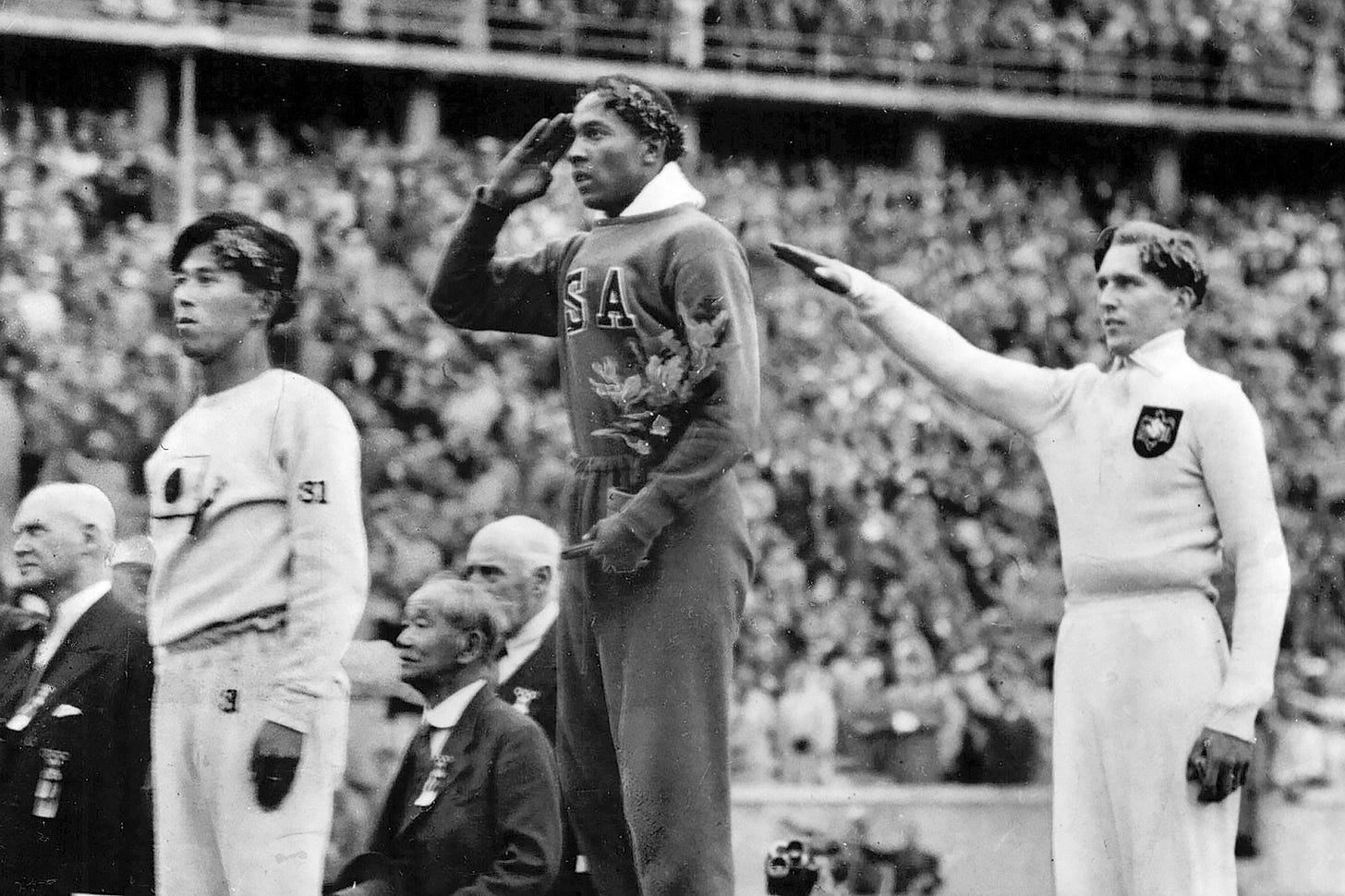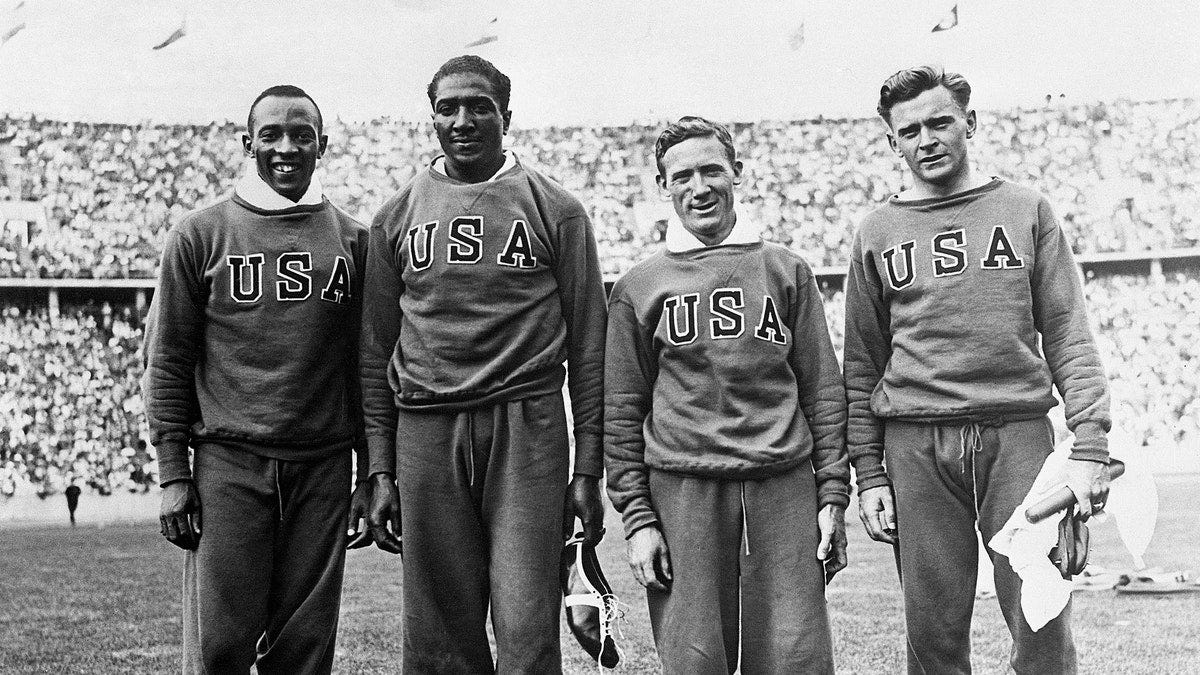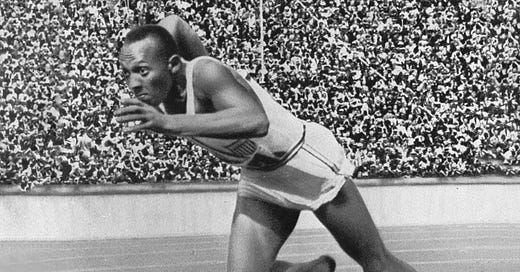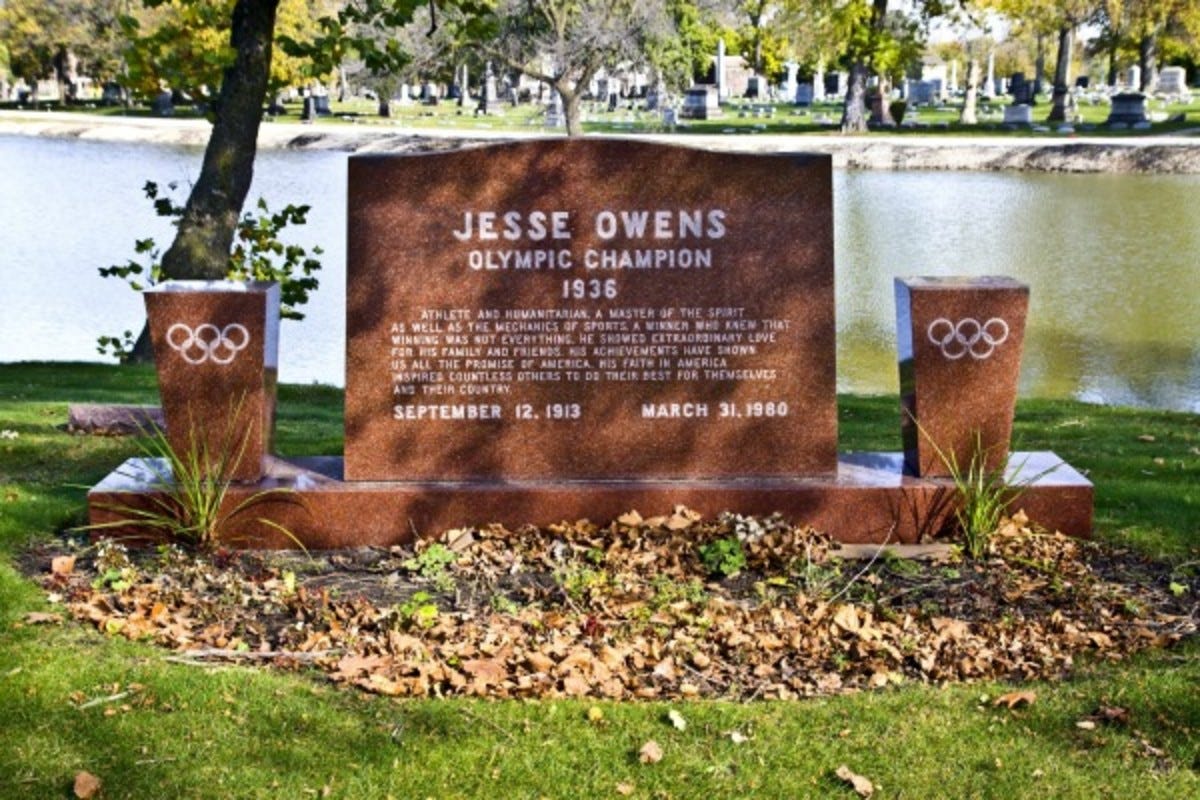Olympics from Berlin to Paris: Jesse Owens' 88-Year-Old Legacy Lives On
The Paris Olympic Games: A Beacon of Human Spirit.
A Prelude to History in the Making
As the world turns its attention to the Paris Olympic Games, the air is thick with anticipation and excitement. The grandeur of the event, the unyielding spirit of the athletes, and the unity it fosters among nations all come together to create an unparalleled spectacle. This moment serves as a poignant reminder of the Olympics' storied past, filled with triumphs that transcend sport, politics, and adversity. One such iconic story is that of Jesse Owens at the 1936 Berlin Olympics, organised at the peak of Hitler's Nazi Germany—a tale of unparalleled athletic excellence and human resilience.
Jesse Owens: A Heroic Legacy
The Triumph in Berlin
At the 1936 Berlin Olympics, Jesse Owens, a 22-year-old African-American athlete, delivered one of the most extraordinary performances in Olympic history. Owens won four gold medals in track and field events: the 100m (10.30 seconds), 200m (20.70 seconds), long jump (8.06 meters), and 4x100m relay (39.80 seconds, a new world record). These victories were not just personal triumphs but also carried significant political and social weight. Adolf Hitler had hoped to use the Games to showcase the supposed superiority of the Aryan race, but Owens' achievements emphatically disproved such racist ideologies.

The Iconic Friendship with Luz Long
One of the most memorable moments of Owens' Olympic journey was his interaction with German long jumper Luz Long. During the long jump competition, Owens was struggling to qualify for the finals, having fouled on his first two attempts. Long, his main rival for the gold medal, approached Owens and suggested he change his mark and take off well before the foul line. This advice helped Owens qualify for the final, where he went on to win the gold medal with a jump of 8.06 meters, setting a new Olympic record.
The friendship between Owens and Long, despite the racial and political tensions of the time, became a symbol of sportsmanship and human connection transcending boundaries. Their embrace after the competition was captured in an iconic photograph, immortalising their bond. Tragically, Luz Long lost his life during World War II, killed in action in 1943 during the Allied invasion of Sicily. Owens later spoke of Long with deep respect and admiration, maintaining correspondence with his family long after the war.
Defying Hitler's Aryan Superiority Theory
Jesse Owens' triumph at the 1936 Berlin Olympics served as a powerful repudiation of Hitler's Aryan superiority theory. His exceptional performance, winning four gold medals in track and field events, directly challenged the Nazi regime's racist ideology that claimed Aryan athletes were inherently superior. His victories not only showcased his individual brilliance but also symbolically dismantled the pseudo-scientific racial theories propagated by the Nazi regime.

The Myth of Hitler's Walkout
There is a common misconception that Hitler walked out before Owens' medal ceremony as a snub. However, this is not entirely accurate. On the first day of the Olympics, Hitler left the stadium before the high jump final, where African American Cornelius Johnson won gold. This departure was reportedly due to a pre-scheduled appointment and occurred before Owens had even competed. After this incident, the IOC president informed Hitler that he must either congratulate all gold medalists or none. Hitler chose the latter option. Consequently, Hitler did not personally congratulate any athletes, including Owens, after the first day of competition. Owens himself later stated that Hitler did not snub him and even gave him a friendly wave when he passed by the Chancellor's box.
Life After the Olympics: Struggles and Triumphs
Despite his international acclaim, Owens faced numerous challenges upon returning to the United States. He struggled with racism and financial difficulties, as his amateur status was revoked when he chose to capitalise on commercial offers rather than compete in Sweden with the rest of the Olympic team. This effectively ended his athletic career. To make a living, Owens took on various jobs, including working as a gas station attendant, playground janitor, and manager of a dry cleaning firm. He even resorted to racing against horses and participating in other exhibitions for money, famously saying, "I had four gold medals, but you can't eat four gold medals".
However, Owens eventually found some success through public speaking and business ventures. He also worked to support youth sports programs and became a goodwill ambassador for the United States. Throughout his life, Owens continued to be a symbol of athletic excellence and the struggle against racial discrimination.
A Legacy Beyond Medals
The legacy of Jesse Owens extends far beyond his Olympic achievements. His life story is a powerful testament to the triumph of the human spirit over adversity and the enduring power of sportsmanship and friendship in the face of political and racial tensions. His achievements have inspired generations of athletes and civil rights advocates. President Jimmy Carter paid tribute to Owens after his death in 1980, stating, "Perhaps no athlete better symbolised the human struggle against tyranny, poverty, and racial bigotry".
Celebrating Owens' Unique Feat
While other athletes have achieved remarkable feats in the Olympics, none have quite matched the unique impact of Owens' performance in 1936. Carl Lewis, in the 1984 Los Angeles Olympics, matched Owens' achievement by winning four gold medals in the same events: the 100m, 200m, long jump, and 4x100m relay. Lewis' performance was extraordinary, drawing direct comparisons to Owens and solidifying his place in Olympic history.
Similarly, Michael Phelps' unprecedented eight gold medals in swimming at the 2008 Beijing Olympics set a new standard for Olympic excellence. However, the context and disciplines of these achievements differ significantly from Owens'. The historical and political backdrop of Owens' victories, combined with the racial barriers he broke through, make his story uniquely powerful.
Looking Forward: A New Chapter in Paris
As the Paris Olympic Games unfold, we are reminded of the timeless stories of courage, resilience, and unity that the Olympics embody. The spirit of Jesse Owens lives on, a beacon of hope and a reminder that excellence and integrity can triumph over hate and prejudice. The athletes competing in Paris will undoubtedly create their own legacies, inspired by the monumental achievements of those who came before them.







